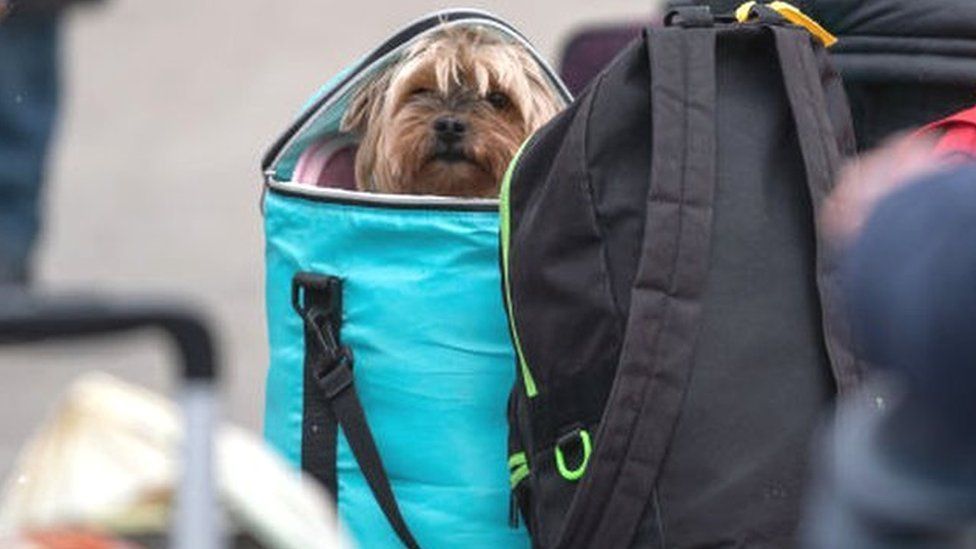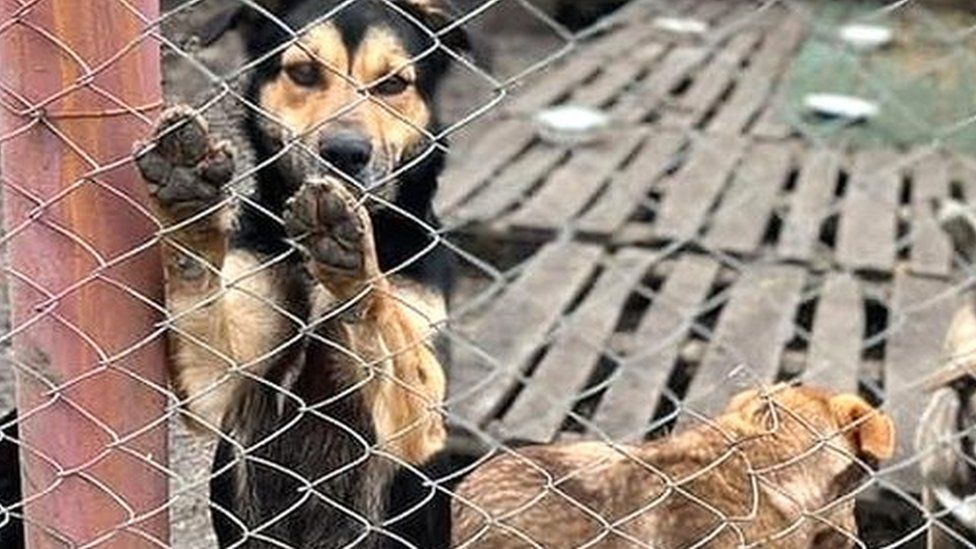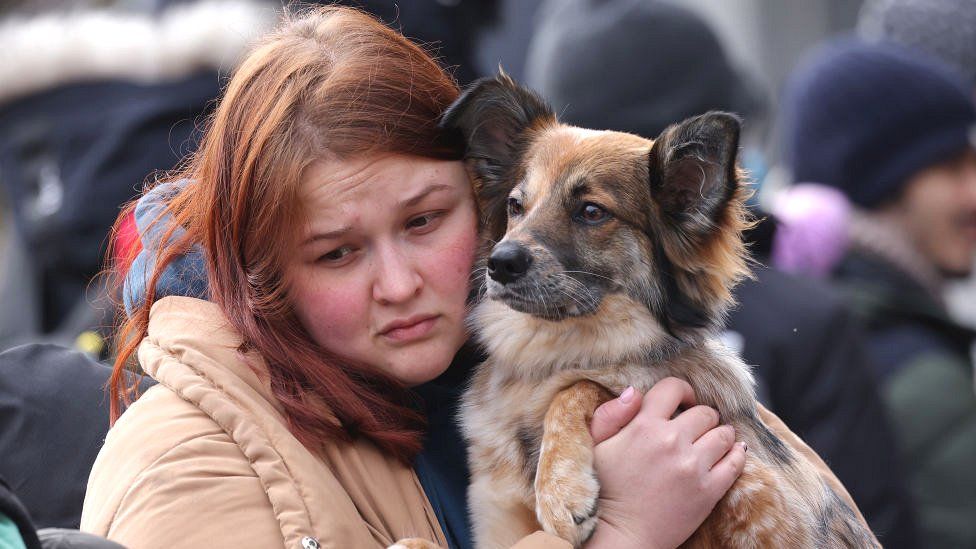How animals in Ukraine are being rescued during war
 Image source, Getty Images
Image source, Getty ImagesMore than one million people have now fled Ukraine, with the EU suggesting that number could rise to four million.
The scale of the tragedy is still unfolding - and while the focus is rightly on the humanitarian disaster, it's meant some people have had to make agonising decisions about what to take with them.
And that includes what happens to their much-loved pets.
"The devastation caused by some of these rocket attacks, that open environment full of glass, concrete and metal is dangerous to people but also to animals," James Sawyer, UK director of the International Fund for Animal Welfare (IFAW) tells Radio 1 Newsbeat.
His organisation supports shelters in Ukraine and has been supplying resources like food, veterinary supplies and paying the wages of staff during the war to ensure animals can carry on being looked after.
"Local supplies are running out, one of the two animal shelters we support has been damaged by shells, losing one of the animals," he adds.
- LIVE: Latest updates from on the ground
- THE BASICS: Why is Putin invading Ukraine?
- IN DEPTH: Full coverage of the conflict
Emergency support
James says it's "too unsafe to be able to put boots on the ground", so the IFAW is focusing on the best possible support remotely.
They've been providing emergency aid to staff who've reported a dire situation with 1,100 dogs in their care.
And staying to look after the animals is obviously dangerous. At one shelter, staff say they're too scared to light a fire in case it draws unnecessary attention.
 Image source, Shelter Pif
Image source, Shelter PifCrossing the border
There are also issues trying to evacuate across the border, with rules around microchipping and vaccination for animals normally in place.
PETA Germany has been on the border trying to "shepherd animals out safely", according to Jennifer White from the animal rights group.
Like IFAW, she says the group is working with partner organisations in neighbouring Romania who've managed to get into Ukraine to rescue abandoned animals, along with offering to vaccinate dogs and cats.
She says two tonnes of cat and dog food have been donated, as well as giving blankets to people who've been walking vast distances.

When you think of animals, it's not just about household pets.
"Whenever an area is hit by war, those animals stuck in the zoo are dependent," Jennifer says.
Reports suggest animals from the Save Wild bear sanctuary near Kyiv were transported to Poland, where a zoo has offered them refuge for the duration of the war.
But that's not the case everywhere, with staff at the Kyiv zoo reportedly saying the opportunity to evacuate its animals has now well and truly passed.
"It's almost impossible to evacuate animals, because it's impossible to provide appropriate veterinary service and transportation," says Kyrylo Trantin, the zoo's chief.
 Image source, Getty Images
Image source, Getty ImagesWhat can people in the UK do?
Jennifer says people should be writing to their MPs to urge government action on relaxing rules to allow entry for people in the UK with their companion animals.
A statement by DEFRA says are "strong biosecurity measures in place to protect the public and other animals from diseases".
But it adds it recognises "the difficult and distressing situation" that Ukrainian nationals faced and the UK government was "looking at options to provide support" to those entering the UK with their pets.
The charity Paws And Whiskers Sussex say they are working with groups in Romania, trying to empty as many shelters there to make space for Ukrainian animals, by getting the animals to the UK.
"The plan is once the Ukrainian animals have received veterinary care and assessments, then we can also begin to find homes for them as well," says Hannah Carter, director of the group.
James adds people shouldn't travel to the war zone and instead should support organisations doing expert work.
"Most importantly, you need to remain committed for the long-term, because solutions for people and animals require that commitment and approach."



No comments